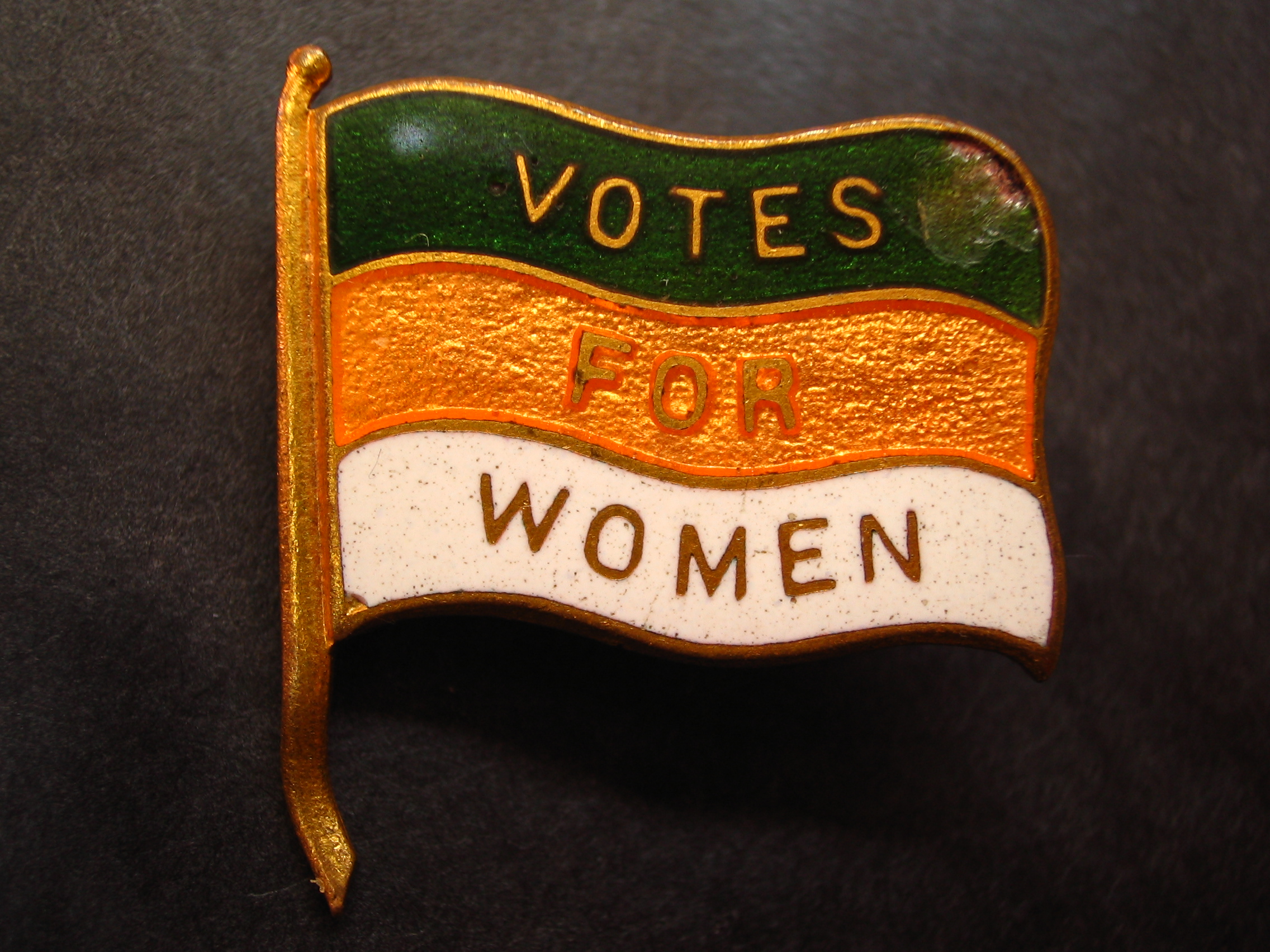It’s been one hundred years since Irish women were granted the right to vote – albeit only women over thirty with property or a university education were the given the opportunity. However, this was the start that was needed to push forward to extend the right to vote to all women, as it stands today. It was only in 1922 that all women over the age of 21 were given equal voting rights.
However, if you recall studying Irish history in school or are taking history modules, then you might have noticed the glaring absence of the presence of women when studying these periods of time. Occasionally, there is mention of Maud Gonne or Countess Markievicz, but even then both of them were said to not have much interest in women’s movements. You might also notice if you study or are interested in feminism or the suffragettes, that Ireland’s story of women’s liberation is vastly underrepresented and goes untold. When looking at the suffragettes or the first two waves of feminism, the focus is almost exclusively on the US. It appears as though the movement as a whole just surpassed Ireland in the early days – which of course is untrue.
Women’s suffrage in Ireland has been largely linked with the fight for the Home Rule, and then the Irish Free State. Women were excluded from the third Home Rule Bill, and as a response Hanna Sheehy-Skeffington, one of Ireland’s most well-known suffragettes, threw rocks at Dublin Castle’s windows to symbolise the smashing of male rule. Even the Constitution was in favour of women spending “her life within the home, a woman gives to the State a support without which the common good cannot be achieved” and that the State would “endeavour to ensure that mothers shall not be obliged by economic necessity to engage in labour to the neglect of their duties in the home”.
Sheehy-Skeffington was disappointed that the Constitution did not enforce full gender equality and believed that the Easter Rising was the first time that women’s suffrage and national liberation converged. Various groups and movements were set up prior to and after the 1916 Rising such as Cumann na mBan. Women were very much active in the 1916 Easter Rising and many were even arrested for their participation. The fact that we have the Republic today is largely due to women’s efforts and participation. However, due to the Catholic Church and Eamon de Valera’s control on power at the time, women were still expected to only exist in the domestic realm as neither were in favour of women’s suffrage.
In the years and decades following the recognition of the Irish Free State, more and more progress was made to achieve equality and patriarchal laws and acts were stuck down. The Family Home Protection Act of 1976 meant that a husband could no longer sell or mortgage the family house without his wife’s consent and the Marriage Ban, which required women to quit their job in the public sector when they got married, was lifted in 1977. Marital rape was outlawed in 1990, the same year contraception was legalised, and six years later divorce was legalised too in a bitterly fought referendum. Although, the last Magdalene Laundry only closed it’s doors as late as 1996.
Women have had to fight to vote, fight for education, rights, and work. Nothing that woman have today has been handed to them or should be taken for granted. Regardless of where you stand with the current wave of feminism, the initial movement is something everyone should have a vast amount of respect for, as women would be nowhere without the suffragettes. It’s for this reason that I always vote, even when it’s not about something I feel strongly for. I do it because I don’t take it for granted. Only a hundred years ago I wouldn’t have had to privilege to do so.
Women’s suffrage is still a topical subject. The inspiration behind Rosie the Riveter, Naomi Parker Fraley, only passed away in late January at 96 years old. While we can celebrate the centenary of the women’s vote and marvel at the progress we’ve made in the past 100 years, there are many that would argue that we’re not equal – the 8th Amendment is still looming over the 12 Irish women who go to the UK every day for an abortion.
No matter where you stand on the fate of the 8th Amendment, whether you support Repeal or Save the 8th, make your voice heard. You owe it to those brave women who came before you. So go out and vote!
![]()


